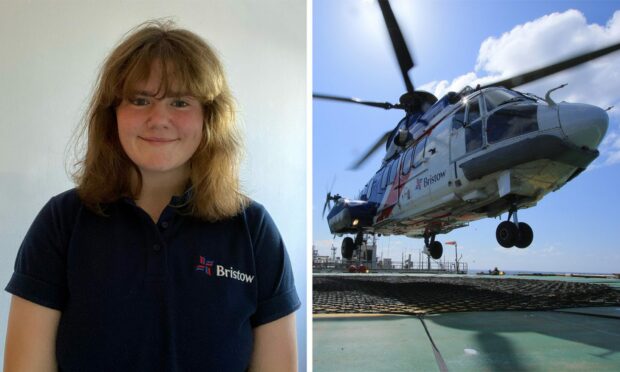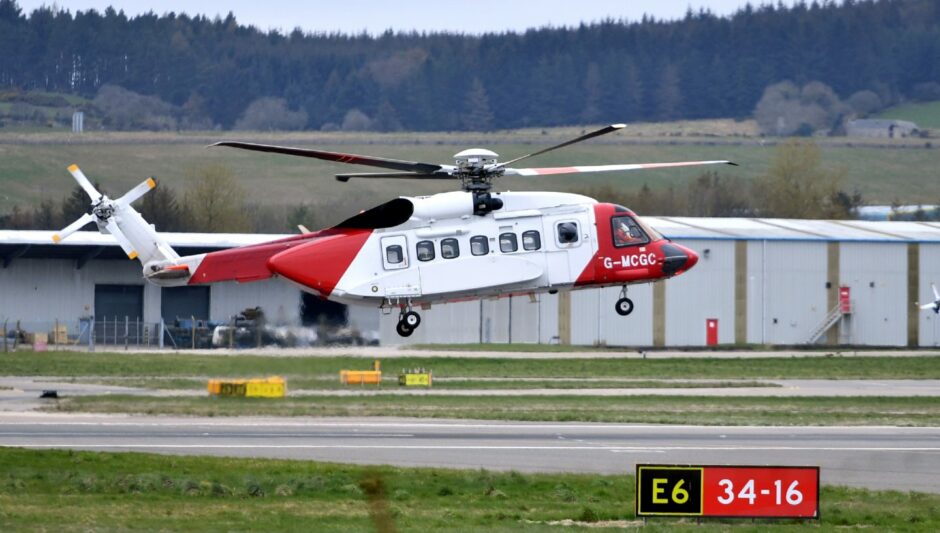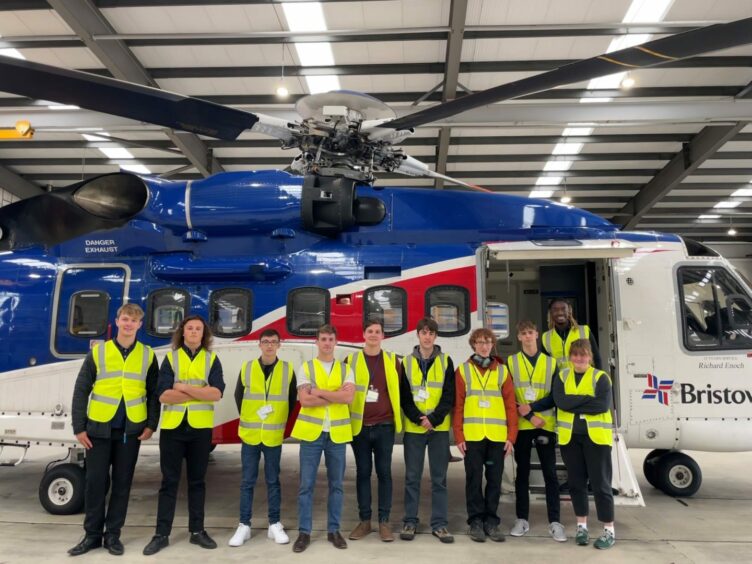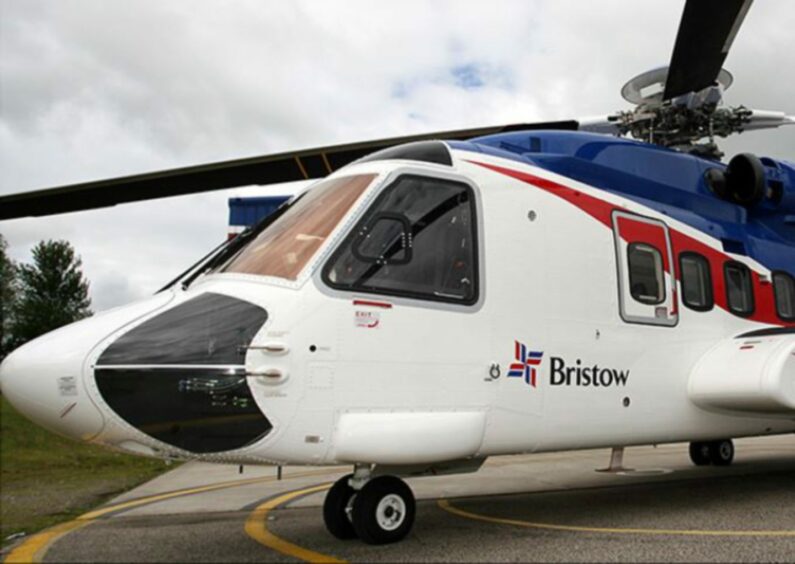A teenager from Dornie, near Kyle of Lochalsh, is doing her bit to change outdated stereotypes in engineering after starting an apprenticeship with helicopter operator Bristow.
Cicely Dobson, 17, is part of one of the largest groups of young trainees to join the business in more than two decades.
She told The Press and Journal she hoped to use her apprenticeship as a springboard to a full-time job working with search and rescue (SAR) helicopters.
Now based in Cirencester, Gloucestershire, she said SAR aircraft were a common sight back home in the West Highlands.
She added: “Where I’m from is surrounded by mountains so we often see SAR helicopters. It’s a small community and when someone is missing everyone is out looking.”
Women can be engineers too
Gender stereotypes put many young women off careers in the engineering industry.
Miss Cicely is the only female among Bristow’s 10 new apprentices and one of only a handful of young women in a class of 27 learning the ropes of helicopter engineering in Cirencester.
She and the other girls may be outnumbered by the boys but they are determined to show they can follow their dreams of becoming engineers too.
Speaking about her training experience to date, and of moving nearly 550 miles from Dornie to the Cotswolds, Miss Cicely said: “It was all a bit overwhelming at first but I’m good with it now.
“I grew up with three brothers so going into a group of so many boys was not an issue.
“Getting to work on helicopters is a dream come true and as an apprentice I’m going to be paid and work as I learn. It’s the ideal start to my career in engineering.”
Two-year programme
Bristow’s new arrivals were selected from more than 350 applicants.
Their training started at Bristow UK’s Aberdeen headquarters, where they were given a behind-the-scenes look at the firm’s North Sea oil and gas, as well as SAR operations.
A busy introduction saw them meet Bristow engineers, including many ex-apprentices.
Successful completion of the two-year training programme will see the new crop of apprentices getting their Part-66 A3 licences.
Getting to work on helicopters is a dream come true and as an apprentice I’m going to be paid and work as I learn. It’s the ideal start to my career in engineering.”
Cicely Dobson, apprentice, Bristow.
They are then qualified to carry out certain tasks on an aircraft, such as changing a battery or a cockpit light.
The trainees can then work towards Category B1 or B2 licences, allowing them to carry out more complex tasks – ranging from gearbox maintenance to working on electrical systems or airframes.
Training manager Paul Richardson said: “In our industry it’s critical we keep a keen eye on the future.
“The various training programmes we’ve run over the last 20 years have been vital to developing the talented teams we need.
“It’s great to see such a large group of enthusiastic apprentices join us this year.”
‘Rigorous and demanding’ course
Mr Richardson added: “Our apprenticeships have become a tried and tested way of developing the best engineers in the industry.
“It’s a rigorous and demanding course, but we think it is second to none in ensuring engineers of the future have what it takes to keep aircraft operating to the highest standards of safety and quality.”
Our apprenticeships have become a tried and tested way of developing the best engineers in the industry.”
Paul Richardson, training manager, Bristow.
More than 100 men and women have embarked on the Bristow programme since the firm launched its first formal apprenticeships in 2002.
A majority – in excess of 80 – are still working for the company.
Mr Richardson said: “Without apprenticeships, we wouldn’t have many of our senior and trusted colleagues.
“In many ways it is better suited for us than a university qualification – the process has proved its value time and again.”
Chief engineer Cameron Beattie started his own career with an apprenticeship and was part of the team who welcomed the new intake.
After giving them their first close-up look at a Sikorsky S-92 helicopter, Mr Beattie said: “I completed an apprenticeship more than 40 years ago.
“It was a great way to start my career so it’s always a pleasure to introduce new apprentices to our operations.
“They really are the future of aviation engineering and I’m looking forward to them becoming a part of our team.”




Conversation